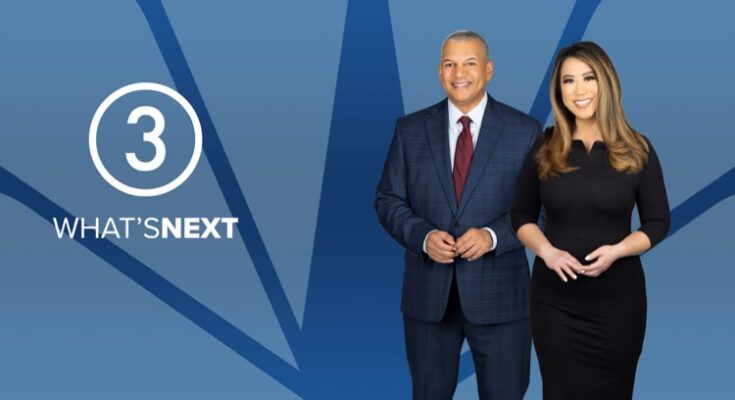Notre Dame College sued over alleged misuse of endowment, $20M in unpaid debt
A civil lawsuit filed in Cuyahoga County on May 14, 2024, has thrust 102-year-old Notre Dame College of South Euclid, Ohio, back into the spotlight barely two months after the school announced it would shut its doors at the end of the spring term. The 42-page complaint, brought by business professor Peter Corrigan, head baseball coach Len Barker and city council member Justin Tisdale, accuses board-of-trustees chair Terri Bradford Eason and unnamed board colleagues of negligence, breach of fiduciary duty and the “invasion of restricted endowment funds,” while Bank of America looms over the campus with a $20 million loan in default.(ideastream.org, cleveland13news.com)
According to the filing, the board quietly revoked written permission for an ad-hoc “benefactor group” to negotiate a discounted payoff of the debt—an about-face that plaintiffs say killed the only realistic rescue plan on the table. They contend Eason’s reversal left donors “twisting in the wind,” deprived students of a chance to stay enrolled and exposed the college to fire-sale liquidation of assets, including specialized laboratory equipment already being “given away” without statutory approvals.(ideastream.org)
The $20 million loan dates to a 2012 campus-expansion spree and was repeatedly amended as enrollment slid from roughly 1,800 to 1,400 students. The college admitted in public statements that by November 22, 2023, Bank of America had issued a “notice of default and reservation of rights,” meaning the lender could seize the property at any time.(news5cleveland.com) Board minutes referenced in the complaint show that loan covenants limited Notre Dame’s annual operating deficit to $1.2 million, a threshold the school allegedly breached in consecutive fiscal years beginning 2021.
Even before the lawsuit, Notre Dame’s finances were fraying. An investigative Bloomberg/Crain’s Chicago analysis published in February 2024 noted that small faith-based colleges nationwide were “in a vise,” with Notre Dame’s enrollment shrinkage and bond downgrades emblematic of a broader crisis that has already claimed Cardinal Stritch and Holy Names universities.(chicagobusiness.com) Rising interest rates and pandemic-era inflation amplified the stress, while pandemic aid merely delayed the reckoning, board members acknowledged in op-eds.(crainscleveland.com)
What jolted parents and alumni, however, was the complaint’s suggestion that restricted endowment principal—funds legally donated for scholarships and Catholic mission work—might be tapped to placate creditors. Plaintiffs argue that Ohio’s Uniform Prudent Management of Institutional Funds Act bars such encroachment without court permission and donor notice; they accuse the board of failing to disclose whether any encroachments have already occurred.(cleveland13news.com) While the endowment is modest compared with the University of Notre Dame’s $18.9 billion, restricted gifts still anchor scholarships for first-generation and low-income students, and any diversion could expose the school to actions by the state attorney general.
Eason and the trustees deny wrongdoing. In a written statement to News 5 Cleveland, the chair insisted the board “worked for many years to address longstanding financial challenges” and only proceeded with the February 29 teach-out after donors failed to present a “viable financial plan.”(news5cleveland.com) The board cites two aborted merger talks—one with Cleveland State University—as evidence of its diligence, and it vows to keep the 50-acre campus an “asset to the South Euclid community” regardless of ownership changes.
Plaintiffs paint a different picture. Corrigan says benefactors had raised millions in soft pledges and hired professional negotiators who believed they could settle the $20 million note for “pennies on the dollar”—a common outcome when lenders fear foreclosure on specialized educational property. Their effort, he claims, was “torpedoed” when Bank of America could not receive a legally binding agency letter from the board.(news5cleveland.com)
The suit also alleges that faculty and staff were blindsided by asset removals. Computers, lab gear and even library holdings were allegedly earmarked for disposal without an asset-disposition plan filed with the Ohio Department of Higher Education, a step required of nonprofit colleges winding down operations.(cleveland13news.com) Plaintiffs argue such actions could compromise future accreditation should a rescue succeed, because visiting evaluators may find indispensable instructional resources already gone.
Beyond the courtroom, the stakes ripple through South Euclid, population 21,000. Councilmember Tisdale—a Notre Dame alumnus—warns the loss of 300 combined faculty and staff jobs would punch a multimillion-dollar hole in municipal income-tax receipts and sap neighborhood businesses of foot traffic.(ideastream.org) Student-athletes on 24 varsity teams scramble for transfer waivers; nursing majors fear specialty credits will not port to partner universities.(news5cleveland.com)
Higher-education analysts say Notre Dame’s plight exemplifies two brutal trends: escalating capital-build debt and highly tuition-dependent budgets. In 2019 the median debt load among small private colleges already exceeded 60 percent of annual operating revenue; by 2024 that figure had climbed as aging dorms demanded renovations. The Ohio campus’s default underlines how even modest endowments cannot backstop heavy borrowing once enrollment flatlines.(chicagobusiness.com)
For now, the parties await the court’s scheduling order. Plaintiffs seek a preliminary injunction forcing the board to re-authorize debt talks, halt asset transfers and produce a forensic accounting of every restricted endowment fund since 2018. The trustees are expected to move for dismissal, arguing that governance decisions are shielded by Ohio’s nonprofit “business-judgment rule.” Legal scholars note that courts seldom second-guess board discretion unless gross negligence can be shown—making the plaintiffs’ documentation of revoked authorizations and alleged secrecy pivotal.(ideastream.org)
Regardless of the outcome, the case is already reshaping the narrative around small-college closures. If a judge finds that fiduciaries must exhaust every restructuring avenue before declaring defeat—and must document endowment integrity along the way—boards elsewhere could face tougher scrutiny. Conversely, a dismissal could affirm wide latitude for trustees to shutter campuses swiftly when balance sheets turn red. Either way, Notre Dame College’s century-long story of immigrant sisters’ ambition, blue-collar opportunity and, ultimately, debt-heavy expansion is now a cautionary tale argued in court, with $20 million and an uncertain endowment on the line.(wosu.org)



